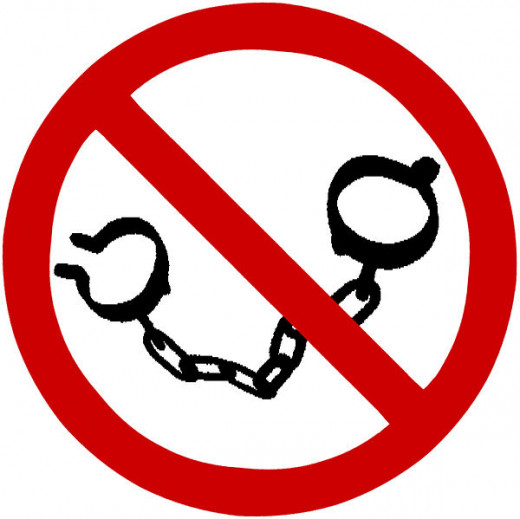Why do we work so much?

Anthropologists largely agree that pre-colonized, nature based cultures only work an average of four hours a day.
Societies located where winters were harsh did little more than stay warm and make babies in the winter.
History has shown that medieval peasants enjoyed anywhere from eight weeks to half the year off from working.
Economist John Maynard Keynes predicted that by the end of the 20th century technology would be so advanced that the people of developed countries would only have to work 15 hours a week and by the year 2030 humanity would barely have to work at all.
Buckminster Fuller said,
“We must do away with the absolutely specious notion that everybody has to earn a living. It is a fact today that one in ten thousand of us can make a technological breakthrough capable of supporting all the rest. The youth of today are absolutely right in recognizing this nonsense of earning a living. We keep inventing jobs because of this false idea that everybody has to be employed at some kind of drudgery because, according to Malthusian-Darwinian theory, he must justify his right to exist. So we have inspectors of inspectors and people making instruments for inspectors to inspect inspectors. The true business of people should be to go back to school and think about whatever it was they were thinking about before somebody came along and told them they had to earn a living.”
Study after study has shown that overworking reduces productivity.
US Congress gets 239 vacation days this year.
So what’s our problem? Why do we work so much?
http://blogs.reuters.com/great-debate/2 … -than-you/
http://www.strikemag.org/bullshit-jobs/
http://deoxy.org/endwork.htm
http://accounting.smartpros.com/x43420.xml
http://www.lostgarden.com/2008/09/rules … ation.html
http://www.policymic.com/articles/38177 … f-congressDid a similar post on Paradism. Paradism is the concept when in future societies, technology has advanced so much that humankind no longer need to work. Also with the concept of Paradism, money as we know it will no longer exist. But in the interim, humankind work for many reasons: many people work for pure socioeconomic survival. Such people must work in order to feed and support their families, no more no less.
Then there are people who work because they have a need to be useful to society. They feel that work is a must in their lives. If they do not work, they do not feel useful nor contributing. They see that the mark of an authentic human being is to work and contribute to society. There are people who are self-actualized who believe that work is a vocation and a calling, they feel that they were placed upon earth and in a certain vocation to express themselves and make their voices heard. The meaning and core of their existence is to find work that they are intensely passionate about.
Then there are predatory people who view work as a source of power, gamesmanship. and upmanship. To them, work is a game in which the rule is the survival of the fittest. To such people, work is an exercise of power and game. They see another employees as those to be manipulated and used to suit the former's means and ends. These people intend to win and other employees are just a pawn in their game. Those predatory people who are in powerful positions also see work as a game but more so than the predatory employee. To the predatory boss, everyone is THEIR pawn to do with as he/she pleases as long as HE/SHE is ON TOP.
Technology has already advanced to the point that many mindless jobs, jobs that no one really wants to do anyway could be automated. Who’s passionate about flipping burgers, cleaning toilets or tipping trash cans? Problem is who will take care of the people who would normally do these jobs?
Well, humanities natural means to care for its self has mostly been erased from the planet. I've been reading "Restoration Agriculture" by Mark Sheppard which denounces the cultivation of annuals for our staple food crops because it facilitates wind and water erosion, destroys bio-diversity, it's vulnerable to pests and diseases which calls for the use of dangerous chemicals and it's labor intensive and costly.
He talks about how most of the planet was abundant with natural, self perpetuating, edible perennials before the rise of annual cultivation and civilization and how it could be that way again with our help and the use of permaculture. Patches of desert devoid of life for millennia have recently been transformed into plentiful oases. http://www.youtube.com/watch?v=goBB4fVLRxc If it could be done there, it could be done anywhere. These systems supported enormous herds of mega fauna that ate things we could be eating. Permaculture also abounds with benefits for our planet, but I don’t want to stray too far off topic.
So, one way to be sure unemployed people can take care of themselves would be to restore their natural means to do so. People should be allowed to live wild if they want to. Perhaps those people who are working for pure socioeconomic survival aren’t cut out for society as we know it. Why should they be forced to participate in it? I think also that freeing people from the rat race would prompt more people to pursue ways to make positive contributions and follow their true passions. This might also limit the destructive capacity of those predatory workers. Just some thoughts.
According to a recent Gallup poll, a whopping 70% of Americans hate their jobs. 70% of Americans miserable for 40 plus hours a week! http://www.latimes.com/business/money/l … 8658.story Then we have the unemployed in a scarce job market who must resort to some sort of assistance or crime just to make ends meet. It’s ridiculous! We could do better.People can live wild nearly anywhere they want to. All we ask is that they do not destroy plants, animals or the land belonging to the people of the nation as a whole.
The problem is that living wild, without the modern conveniences that make food gathering so efficient, requires very large tracts of land. Fertile, watered, land that is relatively scarce.Indeed, Mr. Wilderness immense tracts of land would have to be reclaimed somehow, but it wouldn’t necessarily have to be fertile or wet as the video I posted above shows. The southern part of the Dead Sea region receives less than 2 inches of rain a year; they used no outside water sources, they just caught every drop of rain that fell on the lot. Are you familiar with berms and swales? http://www.minneola.us/npdes/swale.pdf or hugelkultur? http://www.richsoil.com/hugelkultur/
From what I’ve seen, living wild is only legal if you don’t get caught. Unless you move to Slab City, California http://www.thedailysheeple.com/living-w … usa_072013
Homeless camps are “evacuated” and destroyed all the time. Cities are criminalizing the homeless and blocking people that want to help them. http://rodrainey.hubpages.com/question/ … iminalized or http://buffalogal1960.hubpages.com/hub/ … a-Gone-Mad
Also, virgin forests and savannas that would sustain people naturally are mostly gone; sure we have a lot of parks and green spaces, but most are far from what they once were and far from ideal to sustain humans in their current state. Furthermore, the skills needed to live wild have largely slipped away leaving folks to beg or steal.
Why do we work so hard and so long...
Well two main reasons, 1) a sick obsession with consumerism that so many in the western world have picked up (mainly due to it being pushed through advertising by those who profit from it) a system that demands constant spending on unnecessary trivialities.
2) Most of what mot people produce gets taken from them, partially by taxes (though these at least theoretically contribute to their lives) mainly by the profit margin of their employer or distributor.
I don't know how many hours a day subsistence people "worked" but I know they often didn't live very long and many children never survived infancy. So on balance I will take a longer work day which I spend doing a job that helps other people and that I enjoy.
Life expectancy dropped considerably with the industrial revolution.
It's not for nothing that the bible stated that a man's span was three score years and ten.There are subsistence communities right now, and infant mortality is high as it death from climactic extremes and other events modern life and large communities insulate us against.
IMHO I will stay here in modern suburbia. The alternative is available to anyone who want to pursue it.You are making the rash assumption that pre industrial communities were subsistence communities!
Some were, just as some post industrial communities are subsistence communities but not all were..I suggest you read what I said again. Especially the first sentence. My point was exactly the same as yours. Subsistence living is available right now. If people want to do that, they can.
Yes, I read your post before I replied to it and again just now. I can't escape your implication that pre industrial communities were subsistence communities.
That implication is not present in what I said. I was making the exact opposite point.
"There are subsistence communities right now, and infant mortality is high as it death from climactic extremes and other events modern life and large communities insulate us against.
IMHO I will stay here in modern suburbia. The alternative is available to anyone who want to pursue it."
I'm afraid however many times I read that I cannot escape the implication that pre industrial communities were subsistence communities.Depending on your definition, they mostly were. After all, few homes had a 2 car garage attached.

A tribe living in straw huts, gathering wood for heat and without sanitary facilities is subsistence whether they worked 4 hours a day to maintain what they had or 16. Even the great Rome was barely able to survive it's needs for water and sanitation and that was done through slavery (of course, the nobility had more even while doing less).You have a very strange take on history if you believe that before the industrial revolution we all lived in straw tuts!
True John, most lived in the country and worked on the land, usually for someone else.
No, most did indeed work on the land - for as little as two or three weeks a year. The rest of the time they worked for themselves.
I lived for some years in a largely Georgian town and believe me there weren't too many straw huts! Instead there were substantial houses, many with stables and the remains of an extensive support structure (which is a poncy way of saying "lots of shops and small traders")
If you think those successful merchants built their substantial houses off the backs of impoverished people you need to think again.
You miss the point entirely.
No matter what point you pick in history it can be considered as "subsistence". I grew up in the 50's. One phone, one car, one bathroom. The majority of food came from a garden and hunting; we didn't have enough coming in to purchase even our food! Subsistence living for sure.
A subsistence living we were quite happy with, just as those people in straw huts were. Those huts may have been far, far superior to their neighbors who had only a tree branch lean to, after all.
Subsistence is thus a relative, not fixed, value and what is subsistence to one is riches to another.You must be joking! Car, telephone, bathroom and food from the garden and hunting! That isn't subsistence living,
Subsistence is having the bare minimum to support life not being a bit short at the end of the week and that is not relative, it is absolute unchanging no matter where your peers stand.
With a life expectancy in medieval Britain of 30 years, that's a little hard to swallow. I classical Rome it was slightly worse, at 28.
http://en.wikipedia.org/wiki/Life_expectancyLife expectancy at the start of the Industrial Revolution had dropped considerably below 30 years.
And, you need to define your starting point for life expectancy. If at birth it doesn't preclude survivors from a long and healthy life.I fail to see how longer life expectancy can be directly attributed to the increase in working hours. In fact the opposite is true. http://www.washingtonpost.com/wp-dyn/co … 01630.html
Wouldn’t longer life expectancy be the result of education and advances in medicine and technology? The primary cause of death for most adults in the pre-colonized world, according to anthropologists, was injury and infections. http://www.nytimes.com/2013/05/26/opini … ?_r=1& Modern medicine doesn’t have to go away if people aren’t forced to work, does it?
Why do we work so hard?
There's a fairly famous saying:
Work harder! Millions of people on welfare are depending on you!I see that you are totally missing the point of this thread as well!
Totally agree, I am with you on this premise. Not only do we work hard so that those on welfare DON'T have to, THOSE FAMILY freeloaders and moochers NEVER HAVE to EVER work because WE carry THEM!

I don't really have a problem with the notion, but, I mean . . . eventually. One day technology will be so advanced as to automate pretty much everything, but I really am talking centuries. As technology advances, low-skill jobs that the robots have taken up are replaced with robot-building/designing/maintaining/organising jobs, as in order to appreciate the benefits of it people need to provide worth to others to pay for it. These young people that question the need to work for a living need to tell us how this is going to happen, otherwise I have no problem with them just going into the forest and living the natural life.
I attribute our current working hours to a mixture of things. Economic growth over the past 2 centuries has allowed us to work more hours, as maintaining the home and family has become easier. Public schooling relieves responsibility from the parents. And simply, we are a workaholic culture. Please bear in mind that the average person in the medieval times was living in unspeakable povertyPoverty statistics as we demand them today were not recorded, but look at the high infant-mortality rate, the damage and frequency of famine, the spread of disease. By our current standards that would be considered poverty.
Exactly. Why try and pin modern definitions of poverty on people who by their own standards and the standards of the day were not poverty stricken?
Because the whole point of the thread is comparing people's working hours of today and in different periods of history.
Yes, and confounding it with spurious arguments like "everybody lived in straw huts" and "didn't have double garages".
If people were well fed warm and dry, that is the only point of comparison that is applicable, and by and large they were.
Some did live in abject poverty, just as with the much much longer working hours of the 21st century some still do.I don't see why being well fed, warm and dry has to be the limit when talking about standard of life. What about cleanliness, sanitation, access to healthcare? In that regard we are better off today by leaps and bounds.
Are you actually arguing that humanity has made no progress since the medieval times?
Maybe not centuries. http://www.dailymail.co.uk/sciencetech/ … perts.html
Well, for starters, Americans (and Earthlings) could and should be free to have the necessities of life like food, water and shelter without a price tag and without shame or stigma. I would personally add health care and education to this list, but we’ll just start with the essentials. People need to understand that nature provided its inhabitants with food, water and shelter before the rise of civilization. The modern world never had the right to seize them and hold them for ransom. The rat race is not natural, no one asked to be born into it so why should anyone be forced or coerced into participating in it simply to survive? To put it another way, no one expects everyone to be an accomplished athlete or an artist or a musician or a good cook or even a good parent, etc., etc., but society does expect everyone to make and manage money or depend on someone who does just to survive. How does this make any sense?
I could go on and on and on about other ways America could and should be freer, but these are the most crucial.As there is a price tag for everything, from a bubble gum ball to a mansion, you might want to speak to God about making the necessities free, without a price tag. And in spite of what you say, there has always been a price tag - our caveman ancestors, living in those "natural" shelters provided by God, still had to defend them. They still had to gather food, including stalking and killing of such animals as a wooly mammoth, and carry water to the home. The price wasn't money, but I assure you there was a price to be paid, and one that is far higher than we pay today in the "rat race".
So talk to God about the necessities, and then when He is delivering everything we need to sustain life for free you can talk to Him again about some nice luxuries (I presume from your post that you would not stop at necessities).A sabre tooth tiger, maybe. A bear come fall. Or another village that wants it. TANSTAAFL, and that includes nice warm, dry caves.
Be careful there, John - it might fall off!
It's a shock, isn't it? That man has to work for what he wants, whether necessity for life or luxury? And that if his work is unsatisfactory, he will die.
It's true, though - nothing in life is free.Totally agree, nothing in life is free. Well, nothing worthwhile. Mature grown ups know and realize this premise. No one owes anyone a thing in life. If one wants something in life, it has to be earned. The owe me mentality is the reason many welfare and social programs have gone completely awry. People at this stage of the game have to work to supply a decent and above standard of living for themselves and for their families. People who elect not to work oftentimes have a very substandard living. Even those who work are a couple of paychecks away from homelessness. One must work to live as a human period.
To an extent I agree, but I said nothing about not working at all. The question was, "why so much?"
Because the alternative would be to have everybody working less and then the masters would not make as much profit.
There are various way for people to work less and be more self-sufficient right now if that is what they want to do. There are communes for example with open slots.
That isn't how everybody likes to live though. Some may wish to stay in main stream society but with more leisure time.
And the obvious answer is to require someone else to provide charity so you can have leisure time? Communes won't allow it, socialists will, so become a socialist, quick!
Does it occur to you that communes don't provide the benefits of living in main street society because of wealth redistribution? That such redistribution results in the conditions most people don't want a commune, not in the high standard of living of main stream society?
"Americans (and Earthlings) could and should be free to have the necessities of life like food, water and shelter without a price tag and without shame or stigma. I would personally add health care and education to this list..."
That very much sounds like "not working at all" to me. Not "why so much".But why shouldn't everybody be entitled to all those things in exchange for a fair days work?
Define a fair days work. The 10 widgets Bob produces per day or the 2 that Bill makes? They are obviously very different; which is a "fair day's work"?
There are many men who are far better paid than me who spend their whole working life deciding what a fair days work is, or don't you do time and motion studies in the US?
Mostly they decide how to work more efficiently; such studies have nothing to do with "fair".
And the fakirs deciding what is "fair" are just that; fakirs. Their conclusions have no value whatsoever because their primary concern is in either providing a specific answer or a PC one.
Only three things decide what a fair price is; the market value, the buyer and the seller. Not whether it is ethical or moral, not whether a person (or family) can live on the fair price of labor, not how much profit the seller (or employer) makes, and not how physically demanding the work is. Only those three things and even then market value comes in a distant third.No of course they have nothing to do with fair but they are all to do with what a reasonable amount of work in a day is.
No they don't. It has nothing to do with "reasonable" and everything to do with maximizing the amount of production with given manpower and aids (machines, tables, knives, whatever).
Is that then what you would term a "fair day's work"? The absolute maximum that can be put out by one person in a specific task/environment? Because not even I would go along with that one.So you're telling me that these people can't be trusted to work out what is a fair output! Not really worth their money are they?
They can very often be very useful in maximizing production, but no, they cannot determine that elusive "fair days wage".
At least not to your satisfaction as you demand the answer fit into your personal ethical/moral structure. There is little doubt they could do a survey of local workers in a specific job, average their production and wage and declare that to be "fair", but that would inevitably leave many people calling "FOUL" (specifically John Holden) because some jobs will inevitable have a very low "fair" wage and not one that will support a family of 4. Or 3 or 6 or whatever family size is the PC number today.No, determine a fair days work, leave the pay out of it. That's for the workers and management to sort out.
OK. You still have a problem, as that is a defined quantity. The maximum possible? Half the maximum? The average, given the locality and equipment provided? Does gender, age, disability, etc. make a difference or are all considered to be equal? How about the shift being worked or the season of year if outdoors? Will extraneous environmental things be allowed in the consideration (is it raining and the job is painting a house)?
Your experts could find the answer, but you will have to define what steps they should take to determine it. You will have to define it, not them, and unless it is a very simple definition (half the maximum ever recorded, maybe) it becomes a matter of ethics and morals as well.Most of them are judgement/ethics calls.
Is a fair day's work digging ditches by hand the same feet of ditch dug for a woman as a young man? How about a 60 year old man?
If the worker shows up to paint the house and gets just one wall done before the rain hits has he done a days work? He waited all day for the rain to quit...
How much less is a graveyard shift worker expected to do, given that his biological rhythms are badly disrupted by the schedule? While others don't seem bothered by it at all, or even do better at night?
And when you have decided what a fair day's work is, you still have the much harder task of deciding what the day's pay should be.All those problems are easily solved if the workers sit down with the bosses and reach agreement.
And that doesn't mean workers and bosses sitting down to hear what the bosses say they have to do.Hmm. Yes and no; the boss needs a specific job done, for which he will pay a wage. He doesn't need something else accomplished and there is no value to be gained by discussing how may walls will be painted when the boss needs a ditch dug.
Given that small clarification, yes the employer and employee need to agree on what a day's work will consist of. This is a step that is seldom done though - it is more likely left silent and assumed. The boss knows what his other employees are doing, the employee knows what he expects to do and hopefully the two match up. When they don't someone may be quite unhappy.
Just as bad is that a great many jobs consist of many, many different operations. A level of performance can't be defined as it changes every day.Yes and it's usually the worker who is unhappy when the boss has decided that he needs two days work doing in one,
Welcome to the machine.Generally, yes.
Had it happen, when a boss demanded more and more, past what I felt was any reasonable "fair day's work". So got a job elsewhere.
Welcome to freedom, untainted by excessive and unneeded regulation.Easy enough to get a job elsewhere when there is full employment, not so easy when there isn't.
Any way I'm not talking about regulation, I'm talking about bosses and workers treating each other as partners, not masters and slaves.AIN'T going to happen. NEVER going to happen bosses treating employees as partners. UH UH!
In a very few cases it does happen, and work.
Why do you think not?
Partners, eh? As in equal votes in all matters, matters like employee wages? Of what hours to work today? Wait - as in partners with an equal voice in deciding what to do with profits?
Partners, yes, but partners with very different duties, responsibilities and authorities. Responsibilities and authorities for what they are, not as a means to control another.I know you're not interested in other countries but why do you think Germany has so few union members?
Couldn't be because workers and bosses work together rather than against each other could it?At nearly double the union density of the US, I would doubt that is the reason. Unless you're promoting the idea that the US has a better partnership relationship between employee and employer?
US = 11.4, Germany = 18.6 year 2010
http://stats.oecd.org/Index.aspx?QueryId=20167
Truthfully, I believe that only companies with a good relationship between the two, both recognizing the needs, rights and authorities of the other, will be successful. I've worked on both ends of that, in large and small companies. While one of the big ones was also pathetic in employee relationships, they were also the one losing ground in the marketplace as better employees left for greener pastures and profits generally fell.
Most, but not all, companies have come to recognize this.
Smart and intelligent people DO THIS. They KNOW better than to remain in a detestable job and/or job situation. However, most people elect to be victims, remaining in less than humane job conditions and/or situations and endlessly complain to others. It is all in the MINDSET. Either one owns life or one is OWNED!
So you haven't noticed the shortage of jobs either!
NO NO NO NO NO NO
The role of the market is to create prosperity and progress for humanity (the market in and of itself has no value without it's human consequences .) Yet under your rules I could, given sufficient economic control of a market, create a scenario where every human being bar one starved to death while that one person used all the money made in hundred dollar bills to fill in a trench and this would be fine... Even though obviously this has a negative human impact and thus obviously fails to do what a market is supposed to do...
So obviously your rule is wrong and fundamentally flawed.
No, I shake my head in disbelief because you seem to have taken in all your history from Hollywood films.
What, you think Mr. Caveman lay back on his sofa while the sabre-tooth popped food in his mouth as if he were a Roman aristocrat in the movies?
True thing, John - from cavemen on man has had to work to feed himself. There were very, very few exceptions and even then somebody did the work. We're a long way from the Garden of Eden.The average cave man probably went through life without ever seeing a sabre tooth tiger.
By the actions of modern primative tribes the hunters would hunt for several days and return with enough meat to keep the tribe going for weeks, supplemented by gathered food. They weren't hunting day in day out.True. The sabre tooth was not world wide, and humans were scarce where it was found (maybe they became cat food when the sabre tooth decided it wanted the cave?). Does that negate the point made?
Modern primitive tribes (what a conundrum!) are all in the tropics, were food gathering was and is a much different thing from that in much colder climes.
I daresay that meat did not last for "weeks" in the tropics or even warmer climates south of the 45th parallel. Whether it did or not, though, it's good to see that you understand and agree that work is necessary to eat. At least for our ancestors, before the massive charity programs of today were found to be such effective vote-buyers.
- the price of effort is high for some.
Ah, but these were prices humanity was naturally suited for or “designed” to pay, were they not?
I guess so, if you feel that humanity was suited or designed to die while pushing mammoths of a cliff so the community could eat tomorrow.
Or walk through a field of plants, looking for tubers to eat (think migrant workers on the farm, here).
Or spend hours chipping a flint knife so he could skin an animal to stay warm come winter. Much like factory work today, I'd guess.
Is there much of anything humanity was not naturally suited to do? They are the worlds premier generalists, after all.Well, apparently we're not all suited for the way things are.
Related Discussions
- 17
A new record! U.S. life expectancy surpasses 78
by Stacie L 14 years ago
....looks like we Americans are living longer...is that good?I hope I have enough money to live on...http://www.msnbc.msn.com/id/42111907/ns/health-aging
- 4
Do you believe that one day humankind will have a life expectancy into the hundr
by Grace Marguerite Williams 13 years ago
Do you believe that one day humankind will have a life expectancy into the hundreds of yearswith moderately good health physically and mentally?
- 27
What was normal in the 17-1800's?
by sandra rinck 17 years ago
When was poligamy banned or was it ever normal, what does the bible really say about poligamy?what was the average life expectancy in the 1700's and normal age to give birth?
- 3
Life Expectancy for Red Bud Trees
by Kelly A. Kline 13 years ago
I was researching red bud trees for my yard and somewhere I found the life expectancy is 20 years. This seems like a very short time for a tree.Any one have a red bud tree older than 20 years?My goal is to make a "privacy" fence with a row of trees. I wish for the living fence to last...
- 22
Why rate of divorce is increasing the world over?
by Sundeep Kataria 11 years ago
Why rate of divorce is increasing the world over?There must be some practices being followed. Statistics tell that between one-third and one-half of marriages in the United States are likely to fail.!!
- 4
My Jack Chi is 14 and a half years old. What is the life expectancy average?
by chrisw007 15 years ago
My Jack Chi is 14 and a half years old. What is the life expectancy average?
















